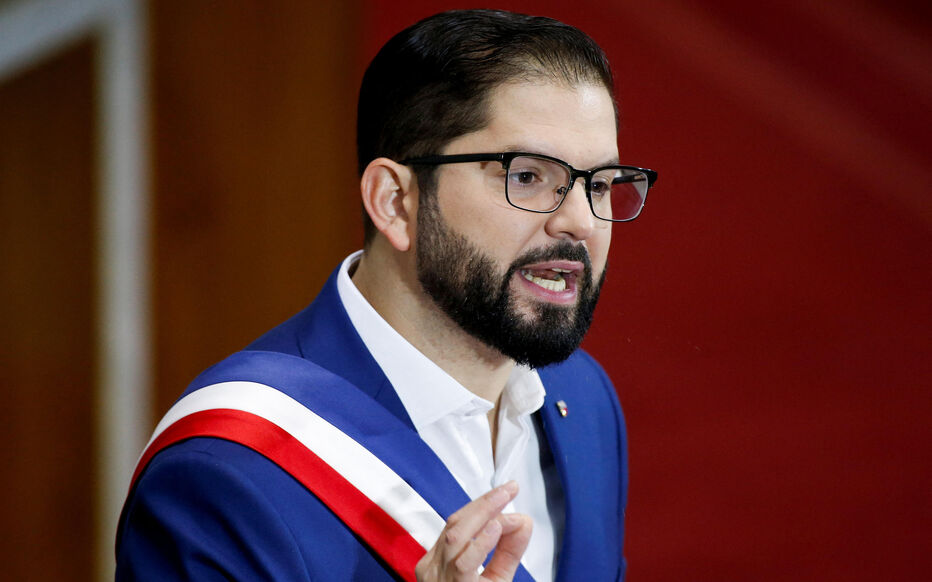
Chile has officially joined a coalition of nations supporting a genocide case against Israel at the International Court of Justice (ICJ). President Gabriel Boric made the announcement during a recent speech, expressing profound shock at the humanitarian crisis unfolding in Gaza. He specifically accused the Israeli Defense Force (IDF) of employing "indiscriminate and disproportional" force, which has disproportionately affected women and children.
This case against Israel was initially brought to the ICJ by South Africa last year, accusing Israel of committing genocide against the Palestinian people in Gaza. The allegations were vehemently denied by Israel. Despite this, the case has gained momentum, with several countries expressing their support or formally joining the legal proceedings. Earlier this week, Mexico announced its support, and Chile's decision marks another significant addition to the growing list of countries backing the case. Other nations involved include Nicaragua, Colombia, Libya, the Maldives, Namibia, Venezuela, Egypt, Bolivia, Turkey, Ireland, Belgium, Indonesia, and the Organization of Islamic Countries, which comprises 57 members.
Chile's support is particularly noteworthy given its large Palestinian community, the largest outside of the Middle East. This demographic factor likely influences Chile's stance on the Israeli-Palestinian conflict. President Boric, known for his progressive views, has been vocal about his disapproval of the Israeli military actions in Gaza. In his announcement, he stressed the urgency of addressing the humanitarian disaster that has claimed thousands of lives and left many more injured.
The ICJ has been actively involved in addressing the allegations against Israel. In January, the court issued a preliminary ruling stating it was "plausible" that Israel was committing genocide. The ICJ ordered Israel to take immediate actions to prevent further genocidal acts and to ensure aid could reach Palestinians in need. More recently, the ICJ issued another directive, ordering Israel to cease its military campaign in Rafah, a southern city in Gaza. This ruling came after over a million Palestinians sought refuge there, following Israel’s declaration of Rafah as the last safe zone in the enclave. Despite this, Israeli airstrikes on a tent camp in Rafah resulted in the deaths of over 50 people, sparking international outrage.
The attack on Rafah, which Israel initially claimed was a targeted strike on Hamas leaders, was later described as a "tragic mistake" by Prime Minister Benjamin Netanyahu after graphic images and videos circulated widely on social media. This incident has intensified international condemnation and increased scrutiny of Israel's military operations in Gaza.
The humanitarian toll of the conflict is staggering. Since Israel's military campaign began in October, at least 35,984 Palestinians have been killed, including more than 15,000 children, according to local authorities. Additionally, over 80,634 Palestinians have sustained serious injuries, and at least 10,000 people are reported missing. On the Israeli side, the conflict has resulted in the deaths of at least 1,139 Israelis and injuries to over 8,730 individuals, following Hamas' attack on October 7 and the ensuing violence.
International responses to the genocide case are varied. Germany is the only country that has pledged to intervene on behalf of Israel, while the United States has explicitly opposed the case. The growing support for the case against Israel at the ICJ underscores a significant divide in the international community regarding the Israeli-Palestinian conflict.
Chile’s decision to join the case marks a pivotal moment in the international response to the crisis in Gaza. As the ICJ continues its deliberations, the involvement of countries like Chile signals a collective effort to address and potentially curb the violence that has ravaged Gaza and claimed countless lives. The outcome of this legal battle at the ICJ could have profound implications for international law and the ongoing conflict in the Middle East.

















